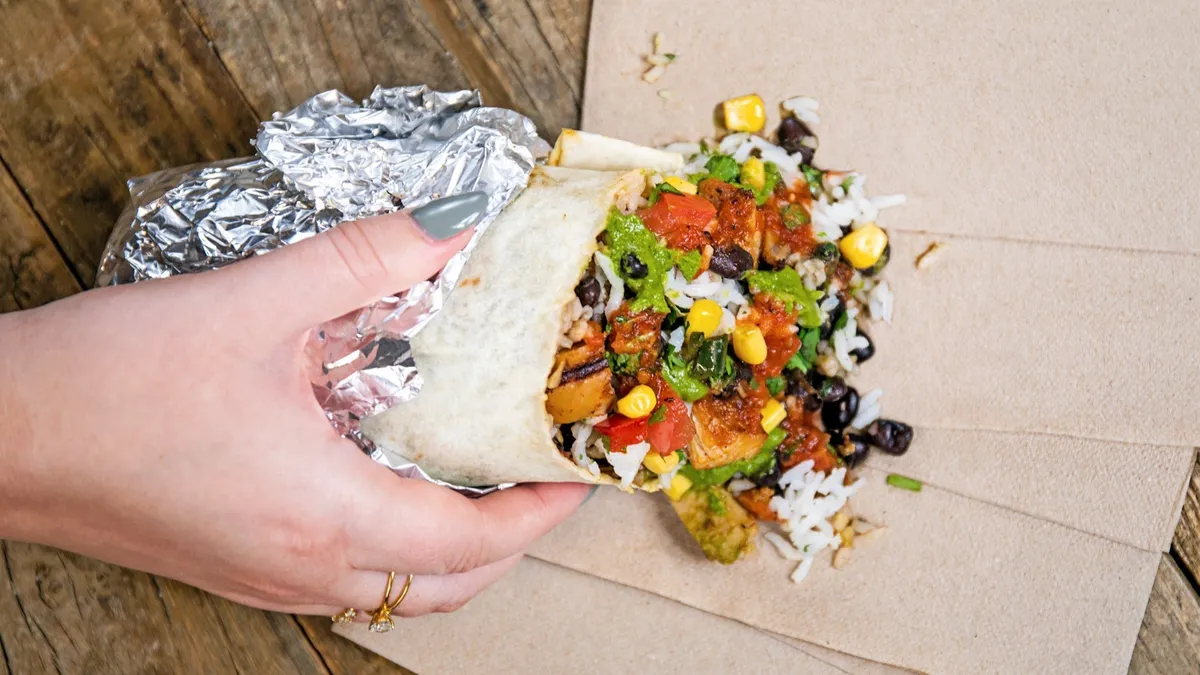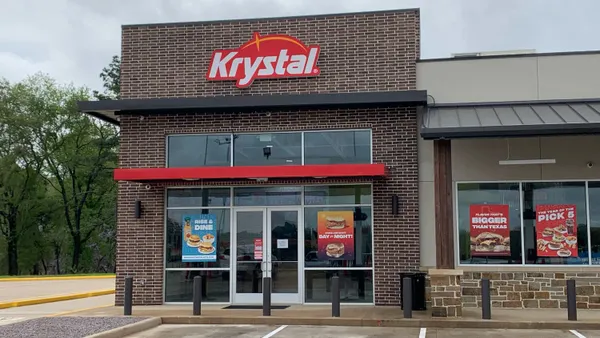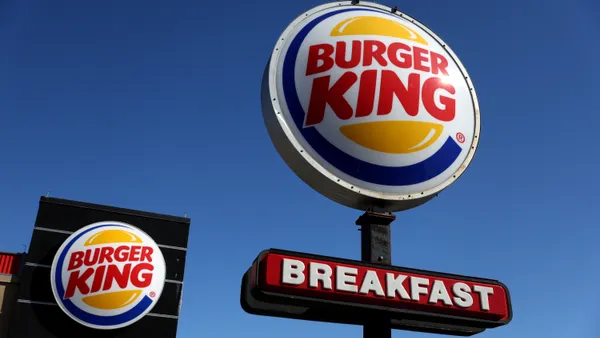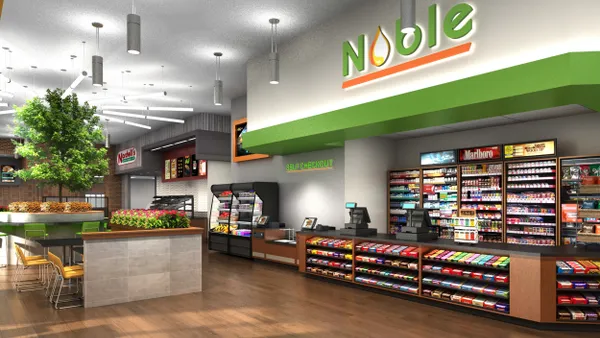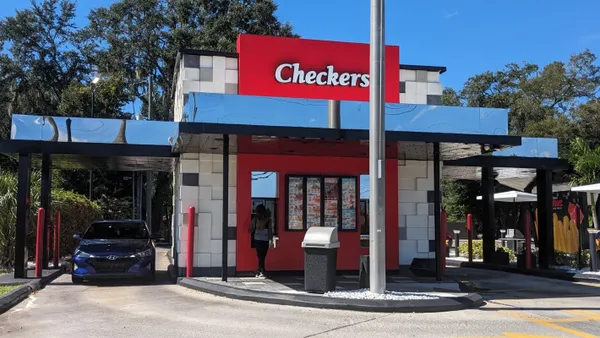Dive Brief:
- Qdoba plans to reach more than 1,000 units by 2027, up from about 750, and expand to 1,500 six years after, Modern Market Concepts CEO John Cywinksi said Wednesday during the ICR Conference.
- Cywinski sees franchising as Qdoba’s advantage relative to Chipotle, the largest Mexican fast casual brand, which does not franchise.
- Qdoba, which was bought by Butterfly Capital in 2022 and incorporated into Modern Restaurant Concepts, didn’t reach its full potential under previous owners, Cywinski said.
Dive Insight:
Under first Jack in the Box and then Apollo Global Management, Cywinski said, Qdoba was effectively orphaned.
“With Jack in the Box, the brand was a bit of an afterthought,” Cywinski said of the period between 2003 and 2018.
Apollo, a massive asset management firm, had $515 billion in assets under management when it sold Qdoba in 2022, four years after acquiring it.
“With Apollo, we were probably a bit of a fly on an elephant’s ass to be quite honest with you, a very small holding within a very large portfolio,” he said. But the brand still performed well, despite the circumstances.
“In 17 of these 20 years, the brand generated positive comp sales with the wrong ownership group and with the wrong management team,” Cywinski said.
Since falling about 10% in 2020, Qdoba’s comp sales have risen 1% in FY21, 12% in FY22 and 6% in the last year. According to Modern Restaurant Concepts CFO Mel Tucker, who joined the company in April 2022, the brand’s average unit volumes have grown 30% since 2019, with 70% of that growth from pricing and 30% from increased traffic.
Tucker said the company’s units cost about $800,000 to build out, on average, and offer a relatively strong return.
Those strong sales are buoyed by a reputation for good food, Cywinski said, citing USA Today’s Readers’ Choice Award, which named Qdoba the best fast casual brand in the country last year. Surging demand for Mexican fast casual in recent years led to explosive growth for Chipotle, and now Qdoba hopes to tap into that demand. With more than 37% of its sales coming from bowls, Tucker said, the chain is well-positioned to capture younger diners’ desire for more on-the-go options.
Simultaneously, the return of catering demand — which now accounts for 10% of sales or $2,973 per restaurant per week, up from $1,251 per week in 2021 — has strengthened Qdoba’s business, Tucker said.
“Catering is our most profitable, highest-growing business,” Tucker said. “It's roughly 1,000 basis points more profitable on a four-wall cash basis than any other business in our restaurant.”
All this has positioned the chain to take advantage of Chipotle’s decision not to franchise, Cywinski said.
“We have significant demand from those who operate in casual dining and QSR, who want into Mexican fast casual,” he said. “We actually have more demand than we can satisfy.”
Given the brand’s concentration in Colorado, where it has more than 90 units, it still has significant growth opportunities in other markets.
“There are states like Florida where we only have 20 units, [in] Texas we only have 20 units, [in] California we have less than 20 units,” Cywinski said. Those three states have a combined population of over 92 million according to the Census Bureau’s population clock.
Cywinski said the fast casual category, including Mexican fast casual, still has a long way to grow.
“There are only about 4,000 restaurants between [Qdoba and Chipotle],” Cywinski said. “I would expect in 15 years, you'll see 15,000 restaurants in Mexican fast casual. That's where QSR and CDR were probably 25 years ago, in terms of lifecycle evolution.”
To support that growth, the brand is planning its first national ad campaign in 2025. Qdoba will raise its contribution rate for marketing — currently 2.25%, according to the chain’s 2024 FDD — to 3.25% of gross sales or higher as it looks to fill in its markets and compete at a wider scale



